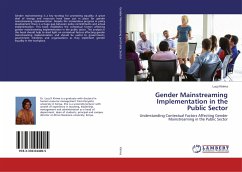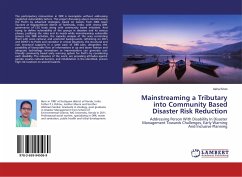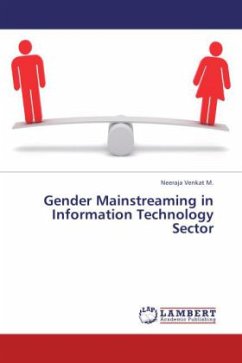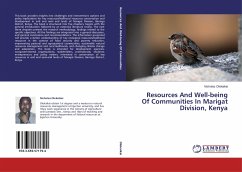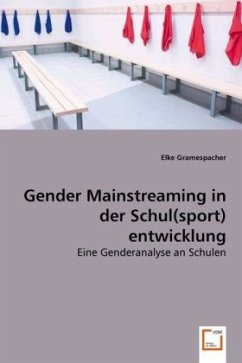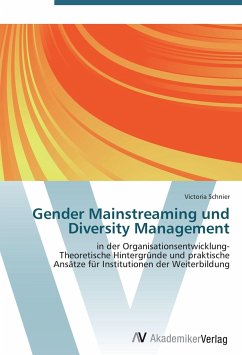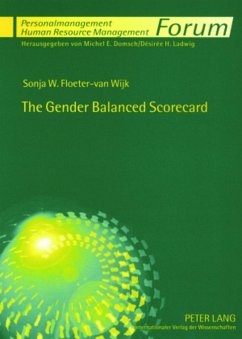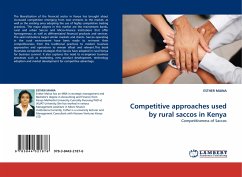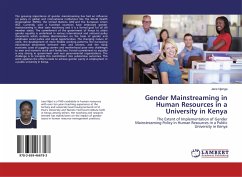
Gender Mainstreaming in Human Resources in a University in Kenya
The Extent of Implementation of Gender Mainstreaming Policy in Human Resources in a Public University in Kenya
Versandkostenfrei!
Versandfertig in 6-10 Tagen
19,99 €
inkl. MwSt.

PAYBACK Punkte
10 °P sammeln!
The growing importance of gender mainstreaming has had an influence on policy in global and international institutions like the World Health Organization (WHO), the United Nations (UN) and the European Union (EU). Currently, over a hundred countries have embraced gender mainstreaming in their state machinery and it is a formal goal for all UN member states. The commitment of the government of Kenya to attain gender equality is underlined in various international and national policy documents which outlaws discrimination on the basis of gender and emphasize social justice and equal opportunitie...
The growing importance of gender mainstreaming has had an influence on policy in global and international institutions like the World Health Organization (WHO), the United Nations (UN) and the European Union (EU). Currently, over a hundred countries have embraced gender mainstreaming in their state machinery and it is a formal goal for all UN member states. The commitment of the government of Kenya to attain gender equality is underlined in various international and national policy documents which outlaws discrimination on the basis of gender and emphasize social justice and equal opportunities. The changing nature of work, the development of more flexible working patterns, the narrowing educational attainment between men and women, and the rising economic costs of juggling careers and motherhood pose new challenges to men and women's work and family lives. Formal commitment to equality is very strong in government and non governmental organizations. The challenge is to translatethis commitment into substantive outcomes. This work explores the efforts made to achieve gender parity in employment in a public university in Kenya.



